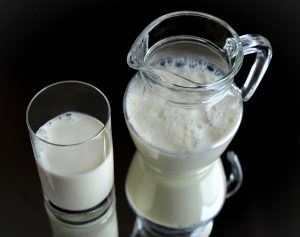One of the reasons why I got into writing in the first place was to be able to communicate science to a wider audience. My degree is in molecular and cellular biology, and through my writing my goal has always been to reassure people that science is around to do more good than bad.
A big thing that took me a long time to understand about nutritional science was the concept of “vitamins and minerals”. I thought this phrase was so vague. In school, they teach you the basics, like the way we get vitamin D from the sun and vitamin C form oranges. But the second half of that statement (“minerals”) is barely ever addressed, and all the way from my high school education through my undergraduate program, STILL no one has really explained what this means to me.
So I decided to investigate myself, and the results have been very interesting! Thus, I’m going to try my best to relay what I’ve learned here. And since there are so many great things to talk about here, this is sort of a part one to a saga of posts aimed at answering the questions: what are minerals, and why do we need them?

Methyl Folate: Happy Blood
Methyl folate is a compound that people take with the goal of providing their bodies with folate. Folate is found naturally in lots of foods, like asparagus, beets and Brussels sprouts. It’s super important to get enough folate in our diets because it’s important for the healthy formation of lots of cell types in our bodies, but specifically, it’s required to make red blood cells.
Folate helps red blood cells form to the correct size and shape. It sounds like no big deal, but if red blood cells don’t come out round (instead of oval shaped) and the right shape (not too big, not too small) they can’t carry oxygen to the muscles the way that they are supposed to. The outcome of not having enough folate in our diets can actually lead to a type of anemia!
So folate is important, and methyl folate is the form in which our bodies can get supplemental folate as well as what we get form our diets (like the ones made by Douglas Laboratories, which is a great company for more informative vitamin and mineral facts!).

Calcium Citrate: Happy Bones
I’m sure it’s not surprising to anyone to hear that calcium is very good for your bones. I had no idea just how good though! Studies have found that bone diseases such as osteoporosis can be treated with a base of vitamin D and calcium citrate, which is great because both of those things can easily be found in our diets and lifestyles already!
Specifically, calcium is in foods like milk, figs, broccoli and kale.
Calcium plays a key role in a process generally called “bone remodeling”. Our bodies constantly remove small amounts of calcium from our bones, and replenish it with fresh calcium. It does this because, while calcium helps our bones out probably the most by keeping them structurally sound, it also has a lot of other roles in the body like helping our muscles contract and our blood clot.
Our bones act as a sort of storage area for calcium so that we always have some if we need it, so it’s important to give the body enough calcium to replenish our bones with to also keep them strong. Calcium citrate happens to be the way, through a supplement, our bodies can get the calcium it needs.

Magnesium Oxide: Happy Everything
Finally for this post, I’m going to talk about a rockstar mineral: magnesium! Again, magnesium oxide is the way to get this element into your body if not through foods like dark chocolate, smooth peanut butter, and brown rice.
It’s kind of insane how much magnesium does for our bodies. It’s a multitasking mineral that shows up in our hearts, immune systems, bones and nerves. In addition, it plays a role in regulating blood glucose levels, and because of this can help with diseases like diabetes and high blood pressure.
It does so many things in our bodies, it’s actually involved in over 300 chemical reactions that take place throughout our cells every singe day. That fact alone was one of the ones that convinced me that not only should I know about all these things my body needs to stay healthy, but actually that it’s super cool to get to read about and learn more about.
So if you’re ready for more science-y posts like this one, get ready! I’m ready to learn more and I can’t wait to tell all of you all about it!

